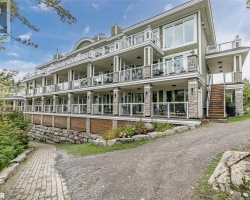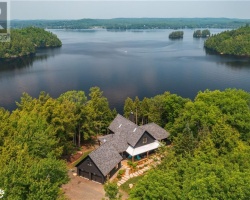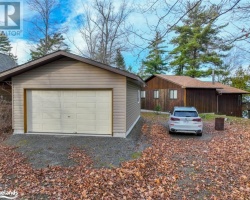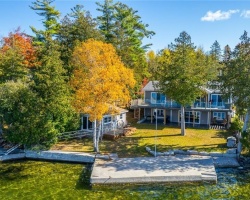Sould I Renovate Before Selling my Cottage

The answer to the question should you renovate before selling is both yes and no. If the renovations are going to cost more than the increase in listing price, then obviously you do not wish to spend money renovating. However sometimes renovations add exponential value to the listing price compared to the cost. Some renovations are also cost no, or vary little money, these should normally be considered first.
Renovating is not the same as Home Staging.
Let us start with some ground rules if you do decide to renovate before selling:
1. Do not spend more than you can recoup
Sure, this seems obvious, but you'll be amazed how many people decide to throw vast amounts of money into a cottage that they will never again enter for the rest of their lives.
2. Never spend more than your profit potential
This rule is more to the point. Some cottage sellers consider it a success to spend $4 500 on a bathroom remodel if they recoup $4 500 from the sale. Think about it, though: you've lost out. All of that time, pain, dust, effort, and forgotten costs? Why?
3. Kitchen and Bathrooms, Remodel Priority #1
Any big expenses should go into the kitchen and bathrooms over other rooms.
4. Limit Hard Costs
Laying new solid hardwood at $19.99 per square foot is a hard cost, very hard. Borrowing a orbital floor sander and sanding your floors is a soft cost.
5. Refurbish Rather Than Replace
Like the previous cardinal rule, don't leave your cottage buyer with any actual materials, if you can avoid it.
6. Appearance, Not Function
Sad to say, but it's better to put that $ 800 into paint or flooring, rather than a new water heater. As long as the water heater is functional, keep it. A new water heater will not impress buyers. But what if the home inspector comes back and says, "Water heater is no good; recommend replacement"?
No big deal. You'll have ample time to replace or knock off an equivalent amount from the sale price. But appearance is something that is not negotiable, and in fact is something that may only register with cottage buyers on a sub-conscious level.
7. Paint Works Wonders
New paint, especially well-chosen and contemporary hues, will transform a cottage. Be careful of deep shades.
Remove Eye Sores Tip #1: Erase Eyesores
Serious cottage buyers want to see the house they're interested in purchasing. They want more than a drive-by peek, too. They want to step inside. Research indicates that the average buyer makes up their mind within two minutes of entering a house.
"You never get a second change to make a good first impression"
If your renovation fixes obvious eyesores that demand attention as soon as someone steps through the door, then it's probably a wise project. Renovations as simple as painting or papering the walls are weekend projects that can dramatically improve salability. They're also relatively easy on your wallet.
Sometimes we overlook obvious visual detractions. Ask a friend or colleague someone who hasn't been in your cottage for a while to drop by. Let them point out the eyesores that jump out as they walk in the door.
Kitchen Catch-up Tip #2: Kitchen Catch-up
One of the most considered rooms in the entire cottage is the kitchen. Granted, we're not all gourmet chefs, but we all spend a lot of time in the kitchen. It is, after all, where the food resides!
How up-to-date is your kitchen? If you're sporting outdated and old-fashioned appliances, you could very well find potential buyers reacting in one of two ways:
The Haggler: A potential buyer sees an outdated kitchen as a cottage improvement project. They're looking at those appliances and cringing. Moreover, they're silently debating on how much to take off the asking price since they will be tackling the renovation.
The Breaker: In today's market, the average buyer doesn't want to buy a fixer-upper. They want a cottage that's up-to-date and ready to move into. If your kitchen (or any other part of the house) requires noteworthy work, it can be an instant deal breaker that turns interested parties away.
But ensure that what you spend is going to be less that what you will recoup in higher list price, if you are unsure, contact a realtor, he will come out and give you advice on this for free.
Fix the Flooring Tip #3: Fix the Floor
It's easy to forget about what's right beneath our feet. Flooring can make or break any room. A stained carpet, dulled hardwood, or bubbling laminate floor can detract from your home's salability. In the long run, replacing versus cleaning may be the best bet. Pristine hardwood flooring could easily create a sizable increase in asking price and actually receiving that price.
Tip #4: Reconnaissance
When it comes to a good renovation, the sky is the limit. Chances are it will be a good investment to make before selling the cottage. However, it's prudent to conduct some neighborhood reconnaissance.
How does your cottage stack up against others on the same street or a few blocks over?
Or ask your Realtor.
Carefully Select the DIY Renovations
If you're serious about renovating the cottage with a view toward selling, there's one final suggestion to consider seriously. Carefully select the do-it-yourself versus the I-need-a-pro renovations.
You ultimate goal is to reap a greater return versus your investment. That return can quickly evaporate if you tackle crucial improvement projects without the experienced assistance of a professional. Consider:
Cottage additions must be up to code and pass inspection. Otherwise, they cannot and will not increase the value of your cottage.
A cottage must be inspected prior to closing. If you tackle vital essentials like wiring and plumbing on your own, the inspector could point out potential issues that turn away a buyer.
When power tools are involved, it's easy to cause more damage than improvement! Unless you're already skilled, it might be best to call on a pro.
Renovations to Avoid like the Plague
Areas that tend not to have good resale value: media rooms, theaters, offices, basements, attic remodels, back decks, most backyard work, etc.
Going to desperate lengths to add more space (e.g., converting a garage into a living room).
Windows are great things to replace, but you will not get your money back on these if done only for sale purposes.
Removing period details that may have some worth - Removing the green shag may be a good idea, but knocking out the circa 1911 newel post that needs ""some work"" is not a good idea. While the newel post may be unattractive, its intrinsic value will likely out-weigh its current ugly state.
Pulling out lighting, unless it will be replaced by other lighting. Even bad lighting is better than no lighting.
In fact, removing anything without replacement of a similar or better item is a bad idea. Holes, gaps, and empty spaces do not attract buyers.













